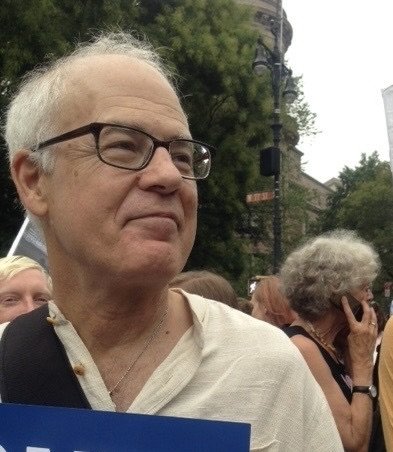While we might believe that all humans are created equal, socially defined characteristics confer or withhold concrete privileges and opportunities that profoundly shape the quality of individual lives. And while we might want to see progress in statistics about average life expectancy or literacy rates, the gaps between rich and poor, haves and have nots are growing, not diminishing.
How do scholars define inequality? What issues are researchers in Humanities fields debating with regard to inequality in the United States, Europe and elsewhere today? What does it mean when we label something “systemic”? How do different types of inequality intersect to an individual’s or a group’s detriment or benefit? What would have to happen to create more equal societies? What strategies could interrupt the reproduction of at least certain types of inequalities?
Historian Robin D.G. Kelley, Distinguished Professor and Gary B. Nash Endowed Chair in U.S. History at the University of California in Los Angeles, and cultural studies scholar Bruce Robbins, Old Dominion Foundation Professor in the Humanities at Columbia University, discussed how intersections of race, class, gender, sexuality, and ethnicity have historically produced and continue to create inequalities. This talk was moderated by Professor Irene Kacandes, German Studies and Comparative Literature, Dartmouth College.
Robin D. G. Kelley’s research has explored the history of social movements in the U.S., the African Diaspora, and Africa; Black intellectuals; music and visual culture; Surrealism, Marxism, among other things. His essays have appeared in a wide variety of professional journals as well as general publications, including the Journal of American History, American Historical Review, The Nation, Monthly Review, New York Times, Color Lines, Counterpunch, Souls, Journal of African American History, New Labor Forum, Re-Thinking Marxism, Spectre, Signs, Social Text, Transition, and Boston Review, for which I also serve as Contributing Editor.
Kelly’s books include, Africa Speaks, America Answers: Modern Jazz in Revolutionary Times (Cambridge: Harvard University Press, 2012); Thelonious Monk: The Life and Times of an American Original (The Free Press, 2009); Freedom Dreams: The Black Radical Imagination (Beacon Press, 2002).
Bruce Robbins works mainly in the areas of nineteenth and twentieth century fiction, literary and cultural theory, and postcolonial studies. His latest books are Cosmopolitanisms, co-edited with Paulo Horta, which was published by NYU Press in July 2017., and The Beneficiary, published by Duke UP in December 2017. He is also the author of Perpetual War: Cosmopolitanism from the Viewpoint of Violence (Duke, 2012), Upward Mobility and the Common Good: Toward a Literary History of the Welfare State (Princeton, 2007).
His short documentary "What Kind of Jew Is Shlomo Sand?" was released by Mondoweiss in the spring of 2020. He is working on a book on representations of atrocity and another book on criticism and politics.
Irene Kacandes was educated at Harvard University, Aristotle University (Thessaloniki) and the Freie Universität (Berlin). Kacandes holds the Dartmouth Professorship #2 at Dartmouth College, where she teaches in the fields of German Studies, Comparative Literature, Women’s, Gender and Sexuality Studies, and Jewish Studies. Author or editor of nine books, her most recent publications include Let’s Talk About Death (Prometheus, 2015) and Eastern Europe Unmapped (Berghahn, 2017). Her reflection on her paternal family’s fate in Occupied Greece, Daddy’s War (Nebraska, 2009, 2012), proposed a new genre, the paramemoir, for the study of personal material. Just released is the edited volume On Being Adjacent to Historical Violence (De Gruyter 2022). Kacandes has held a number of top positions in international professional organizations, including the presidency of the German Studies Association and of the International Society for the Study of Narrative. She also runs a book series on “Interdisciplinary German Cultural Studies” at De Gruyter, Germany.
This event is part of a series called “Humanities for Humans”, presented in partnership with the Walter de Gruyter Foundation (Berlin). Across eight sessions — four in-person and four virtual — the series brings people together to help generate a better understanding of what the humanities are and what role they can play in today’s complex world.



